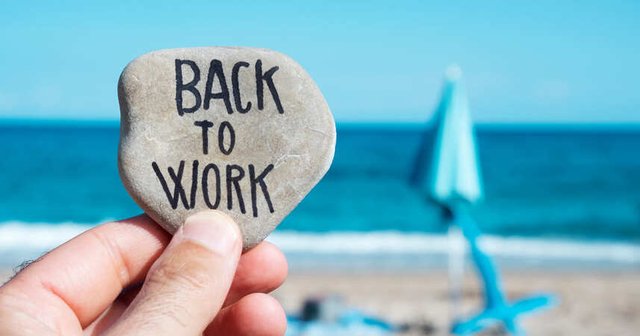
Post-holiday blues: What is it and how to overcome it
Edited on Aug. 20, 2025

Returning to your routine after a period of rest isn’t always easy. For many people, it brings feelings of fatigue, demotivation, or anxiety—symptoms commonly associated with post holiday depression, also referred to as the post holiday blues.
If you're curious about human behaviour and mental well-being, the Degree in Psychology in Madrid offers the foundational tools to understand and address these emotional states, especially as they increasingly affect modern life.
What is post-holiday depression?
Post holiday depression is not a clinical disorder, but rather a psychological response to the abrupt transition from a relaxed holiday period back to the demands of daily life. It’s often marked by feelings of sadness, restlessness, and low motivation.
While it typically resolves within a few days, persistent symptoms lasting more than two weeks may signal the need for professional support.
Common symptoms of post holiday depression
While everyone reacts differently, the most frequent signs include:
- Persistent tiredness without clear cause
- Difficulty concentrating or staying focused
- Mood swings, irritability, or low mood
- Disrupted sleep or changes in appetite
- A general lack of interest in daily activities
These are the classic indicators of the post-holiday blues, and recognising them early is key to managing your emotional health.
What causes post holiday depression?
The shift from a flexible, carefree schedule to a structured, demanding routine is the main trigger. During holidays, stress levels typically drop and free time increases—creating a stark contrast upon return.
Additional contributing factors include:
- Job dissatisfaction
- Lack of work-life balance
- Unclear personal or professional goals
- Feeling disconnected from routine life
How to overcome post-holiday depression
With the right strategies, it's entirely possible to manage and overcome the post-holiday blues. Consider the following tips:
Ease back into your routine
Avoid pressuring yourself to be 100% productive right away. Returning mid-week can soften the transition.
Adjust sleep and meal schedules early
A few days before your return, begin aligning your habits with your work or school schedule to reduce shock.
Continue enjoyable activities
Holidays may be over, but hobbies shouldn’t be. Make time for reading, sports, or social activities to maintain emotional balance.
Practise relaxation techniques
Meditation, yoga, or even simple breathing exercises can help reduce tension and promote a positive mindset.
Revisit your goals
Having purpose and projects that excite you can energise your return to routine and help reframe it as a fresh start.
Seek professional help if needed
If your symptoms persist or intensify, don’t hesitate to speak to a psychologist. Mental health deserves as much attention as physical well-being.
The role of psychology in everyday life
Understanding emotional states like post-holiday depression is part of a broader commitment to mental wellness. Psychology goes beyond diagnosing disorders—it helps individuals navigate change, build resilience, and lead balanced lives.
Specialisations such as occupational psychology play a crucial role in addressing post-holiday adjustment in the workplace, one of the most affected environments.
Conclusion: Finding balance after the holidays
Post holiday depression is a common, manageable emotional response to change. Recognising the signs, embracing helpful routines, and seeking support when necessary can make all the difference in how you readjust.
If you’re passionate about understanding human emotions and supporting others, you can study for a Degree in Psychology at Universidad Europea’s campuses in Valencia, Malaga, or Alicante—and take your first step toward a meaningful career in mental health and well-being.
Mini Summary
- Post-holiday depression is a common but manageable response to routine change.
- Symptoms include fatigue, irritability, low motivation, and disrupted sleep.
- Causes range from lifestyle shifts to job dissatisfaction and lack of balance.
- Coping strategies: ease back into routine, adjust habits early, keep hobbies, practice relaxation, and revisit goals.
- Persistent symptoms may require professional psychological support.
- Psychology provides essential tools to understand and address these emotional challenges.
Article published on July 31, 2025